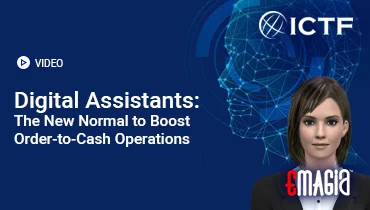Dispute delegation is the process of assigning responsibility and authority to manage and resolve disputes efficiently within an organization. It enhances accountability, streamlines communication, and ensures that every issue is resolved at the right level with clarity and speed.
Understanding the Concept of Dispute Delegation
Dispute delegation plays a crucial role in conflict management and operational efficiency. By defining who handles what, organizations can prevent confusion, duplication, and delays in dispute resolution.
Definition and Importance of Dispute Delegation
Dispute delegation involves empowering individuals or teams to manage conflicts based on predefined roles and authority levels. Its importance lies in creating a smooth workflow that ensures faster and fairer resolutions.
Core Meaning of Delegation in Dispute Management
Delegation is more than assigning tasks; it involves granting authority to make decisions, ensuring ownership of outcomes, and maintaining oversight to track progress.
Why Businesses Need Structured Dispute Delegation
Organizations deal with numerous customer, vendor, and internal disputes daily. A structured delegation process minimizes errors, promotes transparency, and reduces escalations.
Benefits of Implementing a Dispute Delegation Process
A strong dispute delegation framework improves communication, accountability, and efficiency. It allows for quicker responses, better documentation, and balanced workloads.
Enhanced Accountability in Delegation
When authority is clearly defined, team members know their boundaries and responsibilities. This ensures that issues are handled promptly and correctly.
Faster Conflict Resolution and Reduced Escalations
Proper task delegation in disputes allows for direct decision-making, minimizing the need for management intervention and shortening resolution timelines.
Key Components of the Delegation Process in Dispute Management
The delegation process in dispute resolution requires clarity, structured workflows, and effective monitoring. Each step builds accountability and ensures the dispute is handled efficiently.
Establishing Roles and Responsibilities
Defining who does what is the first step toward efficient dispute management delegation. It helps avoid overlap and clarifies ownership for each type of issue.
Delegation Roles in a Dispute Resolution Team
Common roles include dispute handlers, team leads, escalation managers, and compliance officers, each responsible for a specific phase of the process.
Assigning Dispute Responsibility to the Right Level
Assign responsibilities based on expertise, authority, and impact level. Low-risk cases stay with junior staff, while complex or high-value disputes move up the hierarchy.
Delegation of Authority and Escalation Path
Authority must match responsibility. Delegates should have the power to make decisions and escalate only when limits are exceeded or additional approval is required.
Setting Authority Levels in Dispute Delegation
Authority levels define financial, contractual, and operational boundaries for delegates. This structure avoids overreach and maintains governance.
Creating a Clear Dispute Escalation Delegation Path
Escalation protocols outline when and how issues should be transferred upward, ensuring no disputes get stuck without attention.
Building a Dispute Resolution Workflow with Delegation
An efficient dispute resolution workflow integrates delegation principles into every stage—from case intake to resolution. Each step should specify who acts and when.
Stages of the Dispute Resolution Workflow
A dispute workflow follows predictable stages: identification, assessment, delegation, resolution, and closure. Clearly defining these phases reduces cycle time.
Dispute Intake and Classification
Properly classifying disputes by type and severity helps route them to the appropriate delegate with the right authority level.
Resolution and Documentation Process
Each delegate documents their actions, findings, and resolution decisions, creating a transparent audit trail for compliance and review.
Integrating Technology in Dispute Management Delegation
Automation tools enhance the dispute resolution workflow by tracking, notifying, and reporting tasks in real time.
Using Workflow Automation for Delegation
Modern systems assign tasks automatically based on workload, authority, and expertise, ensuring balance and speed in dispute handling.
Leveraging Data Analytics for Dispute Insights
Analytics identify recurring dispute causes and measure delegate performance to drive process improvement and accountability.
Delegation Principles and Best Practices for Effective Dispute Handling
Strong delegation principles ensure consistency, control, and quality outcomes. This section outlines key practices that make delegation successful.
Core Delegation Principles in Dispute Management
Clarity, accountability, empowerment, and communication are the pillars of effective delegation. Each principle strengthens the dispute resolution framework.
Clarity and Communication in Delegation
Provide clear instructions, expectations, and boundaries. Maintain open communication channels to align delegates and supervisors.
Empowerment and Oversight
Delegates must have authority to act but remain subject to oversight through reporting and audits to ensure compliance.
Delegation Best Practices in Conflict Management
Successful delegation requires continuous improvement, training, and performance monitoring. These ensure both quality and speed.
Training for Dispute Resolution Teams
Offer regular training on dispute policies, negotiation, and compliance. Well-informed delegates make fewer mistakes and deliver faster outcomes.
Monitoring Delegation and Performance
Use KPIs such as resolution time, escalation rate, and customer satisfaction to measure the effectiveness of the delegation process.
Ensuring Accountability and Continuous Improvement
Accountability in delegation builds trust and ensures every dispute is handled responsibly. Continuous improvement keeps the process agile and effective.
Tracking and Reporting Delegation Outcomes
Systematic tracking allows organizations to evaluate how well delegates perform and where support or changes are needed.
Developing Accountability Frameworks
Define clear reporting lines and feedback loops to maintain control without micromanaging delegates.
Using Metrics to Refine Delegation Models
Measure accuracy, response time, and resolution quality to refine processes and improve future delegation assignments.
Integrating Feedback into the Delegation Process
Feedback loops ensure the delegation framework evolves with business needs and dispute patterns.
Periodic Review and Adjustment
Hold quarterly reviews to adjust authority levels, update escalation rules, and integrate learnings from closed cases.
Encouraging Bottom-Up Feedback
Delegates often see issues first-hand. Encourage them to share insights that could improve workflows or reduce recurring disputes.
Challenges and Solutions in Dispute Delegation
Despite its advantages, dispute delegation faces challenges such as unclear authority, communication gaps, and uneven workload distribution. Addressing these is essential for long-term success.
Common Pitfalls in Delegation
Lack of clarity, over-delegation, and poor follow-up can cause disputes to linger unresolved or escalate unnecessarily.
Miscommunication and Ambiguous Roles
When communication lines are blurred, duplicate handling and missed steps become common. Clear documentation prevents this.
Overloading Delegates
Too many cases assigned to a single delegate can slow down resolution. Workload balancing ensures fairness and efficiency.
Practical Solutions to Overcome Delegation Challenges
Simple process redesigns and supportive tools can resolve most delegation challenges effectively.
Clear Delegation Matrices and SOPs
Standard operating procedures help all employees know exactly how to act and when to escalate, reducing confusion.
Automated Escalation and Notifications
Automated reminders and triggers ensure no dispute remains unattended beyond its deadline.
How Emagia Helps Optimize Dispute Delegation
Emagia empowers organizations with advanced tools to automate, track, and improve dispute delegation. Its intelligent systems ensure transparency, accountability, and measurable results.
Automation and Workflow Intelligence
Emagia automates dispute assignments, ensures real-time visibility, and enforces escalation paths, resulting in faster and error-free resolutions.
Analytics for Continuous Improvement
Its analytics dashboard provides actionable insights into dispute types, delegate performance, and bottlenecks—helping businesses enhance overall dispute management.
Collaboration and Accountability Features
By integrating communication and reporting, Emagia ensures every delegate remains informed, aligned, and accountable throughout the process.
Frequently Asked Questions on Dispute Delegation
What is dispute delegation in simple terms?
Dispute delegation means assigning responsibility and authority to specific individuals to manage and resolve disputes efficiently within set guidelines.
Why is dispute delegation important in business?
It ensures clarity, accountability, and faster dispute resolution, reducing financial and operational risks.
How do you create an effective dispute delegation workflow?
Define roles, authority levels, escalation paths, and performance metrics. Use automation to track and monitor disputes.
What are common mistakes in dispute delegation?
Unclear roles, lack of oversight, and overloading delegates are the most frequent mistakes that cause resolution delays.
How does technology improve dispute management delegation?
Digital tools automate task assignment, record resolution steps, and provide real-time analytics to support decision-making and accountability.



